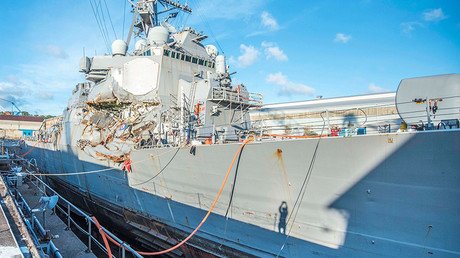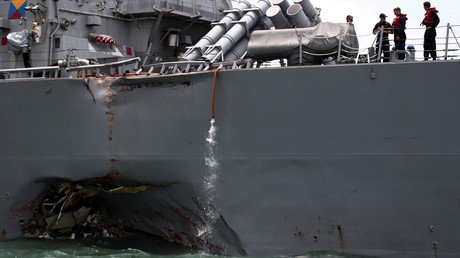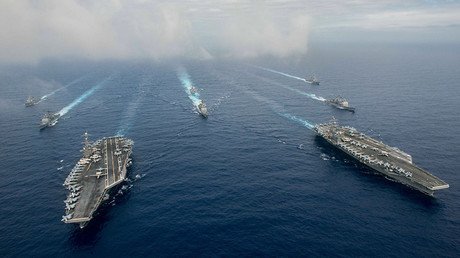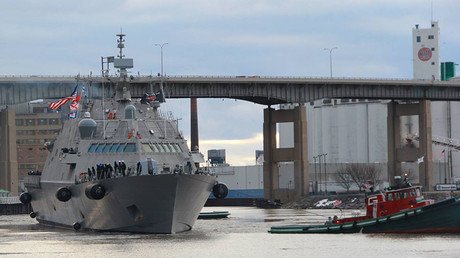US sailors lack basic ship handling skills – Navy report
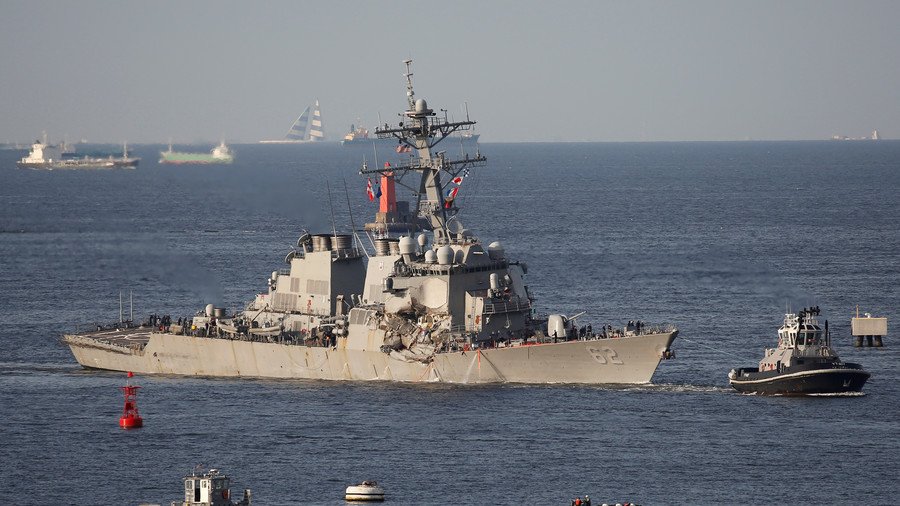
Almost 85 percent of junior officers in the US Navy lack basic seamanship and ship handling skills, according to a new report. Twice last year, this lack of skills led to fatal accidents at sea.
A three-month internal review conducted by the Surface Warfare Officer School selected junior officers in the fleet at random and subjected them to tests on computer simulators. Of the 164 officers tested, only 27 passed the test with “no concerns.” 108 passed with “some concerns,” while 29 had “significant concerns,” reported Defense News.
The tests found that officers struggled to operate radars, and understood but struggled to apply the international rules of the road for ships, especially in low-visibility conditions. They also found that while most officers could avoid close encounters with other ships, they were often ill-equipped to avoid collision when placed into imminent danger.
These shortcomings were directly responsible for a pair of accidents last summer that claimed the lives of 17 sailors and prompted this investigation.
The USS Fitzgerald, a destroyer, struck a container ship off the coast of Japan in the early hours of June 17 last year. Most of its crew were asleep at the time. The bow of the container ship ripped through the hull of the destroyer, smashing machinery rooms, radio rooms, and crew quarters. Seven sailors were killed in the accident.
An investigation found that the officer on duty sailed dangerously close to several commercial ships before hitting the container ship. The crew also failed to calibrate the ship’s radar, failed to make radio contact with the container ship, failed to properly look out for hazards, and only attempted to maneuver out of danger one minute before collision.
As pandemonium reigned among the Fitzgerald’s crew, the captain was holed up in his cabin, unaware of the impending danger. The crew failed to notify him of the hazardous situation, a serious breach of naval norms.
In August, the USS McCain, another destroyer, collided with an oil tanker in a tight shipping lane off the coast of Singapore and Malaysia. As was the case in the Fitzgerald accident, the crash tore open crew and machinery rooms, and killed 10 sailors.
In the McCain’s case, the ship’s commanding officer was on deck, but made several key errors in the hours leading up to the incident. He gave his crew some extra rest earlier that morning and kept the ship at a lower level of readiness, and when danger was imminent, changed the ship’s control configuration, confusing the crew.
A damning report released by the Navy in October found that skill problems among sailors had become normalized across the whole fleet, as commanders prioritized keeping ships deployed to meet orders.
Now, after the latest test results backed up last year’s findings, the Navy is developing a new training program for junior officers, launching next May, and wants to retest them a year later.
“I have every confidence in our current generation of Junior Officers,” Vice Admiral RIchard Brown told Defense News. “We owe them the training and tools necessary to become expert Mariners. Together, we will get there.”
If you like this story, share it with a friend!
